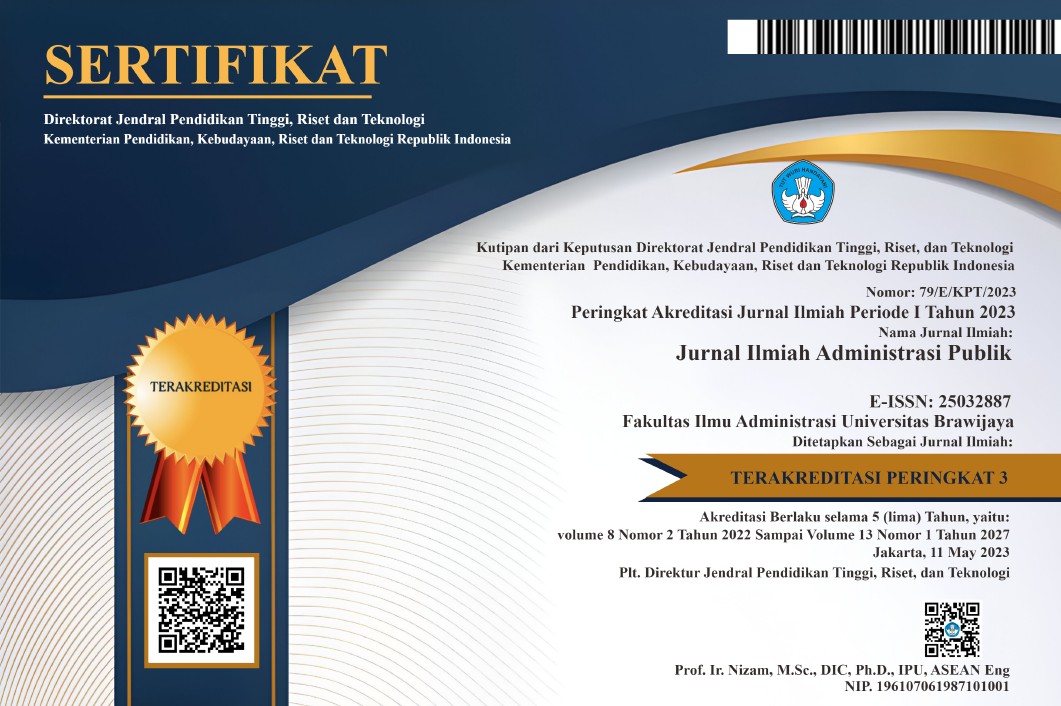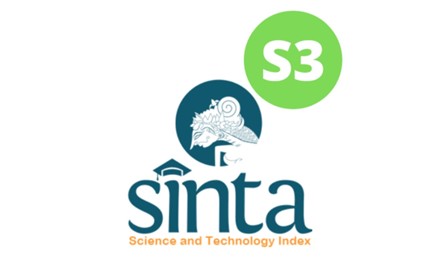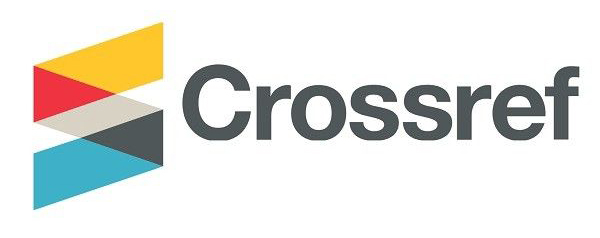The Implementation of Program “Desa Mandiri Benih" (Self-Sufficient Seed Villages) for Promoting Farmers Welfare (Study in Mempawah Regency, West Kalimantan, Indonesia)
DOI:
https://doi.org/10.21776/ub.jiap.2018.004.04.3Keywords:
Self-sufficient seeds village program, Farmer Welfare, West KalimantanAbstract
This study discussed the implementation of Self-sufficient seeds village program in Mempawah Regency, West Kalimantan as an effort of the Government to develops seeds independency in villages and able to provide quality seeds. The study conducted using descriptive qualitative approach using the program implementation theory by David C. Korten (1980). Respondents were composed of participant and non-participants farmers of the Self-sufficient seed villages program. The results showed that in terms of three elements of program content and context of Implementation on supports the program implementation were running well.It is important to observe the sustainability of this program at the end of it farmers would then be able to produce high quality seeds continuously with or without government programs.References
Agriculture Provincial Office (Crops Section). (2017). Laporan Angka Sementara Produksi Pangan. Agriculture Provincial Office, West Kalimantan.
Agriculture Provincial Office (Crops Section). (2018). Self-sufficient Seed Villages (Desa Mandiri Benih) Reports. Agriculture Provincial Office, West Kalimantan Ashley, C. & Maxwell, S. (2001). Rethinking Rural Development. Development Policy Review, Vol. 19 (4), pp.395-425.
Carney, D., Drinkwater, M., Rusinow, T., Neefjes, K., Wanmali, S., & Sing, N. (1999). Livelihoods Approaches Compared. London: Departement for International Development. Korten, David C. (1980). Community Organization and Rural Development: A Learning Process Approach. Public Administration Review, Vol. 40, No. 5, pp. 480-511. Durlak, Joseph A., & Emily P. DuPre. (2008). Implementation matters: A review of research on the influence of implementation on program outcomes and the factors affecting implementation. American Journal of Community Psychology, Vol. 41, pp.237-350.
Dunn, William N. (2003). Pengantar Analisis Kebijakan Publik (Edisi Kedua). Yogyakarta: Gadjah Mada University Press
FAO. (2014). FAO Statistical Yearbook. FAO, Bangkok, Thailand.
Statistics Indonesia. (2015). Indonesian Statistic Agency Reports. Jakarta: Statistics Indonesia.
Statistics Indonesia. (2017). Indonesian Statistic Agency Reports. Jakarta: Statistics Indonesia.
ICA/ ILO. (2003). The Role of Cooperatives In Designing and Implementing Poverty Reduction Strategies. Geneva: ILO.
Irz, Xavier, Lin, Lin, Thirtle, Colin., & Wiggins, Steve. (2001). Agricultural Productivity Growth and Poverty Alleviation. Development Policy Review, Vol.19(4), pp. 449-466.
Ministry of Agriculture. (2010). Annual Report of the Directorate General of Food Crops. Jakarta: Ministry of Agriculture.
James, A & Joshua, M. (2014). Roles of Farmers’ Cooperatives in Agricultural Development InSabuwa Local Government Area of Katsina State, Nigeria. Journal of Economics and Sustainable Development, Vol.5, No.12, pp. 80-87.
Poulton, C., Kydd, J., & Dorward, A. (2006). Overcoming Market Constraints on Pro-Poor Agricultural Growth in Sub-Saharan Africa. Development Policy Review, Vol. 24(3), pp.243-277. Salokhe V.M., & N. Ramalingam. (1998). Agricultural Mechanization in South and South-East Asia. Paper at the Plenary Session of the International Conference of the Philippines, Society of Agricultural Engineers, Los Banos Philippines.
Tarigan, Antonius. (2000). Implementasi Kebijakan Jaring Pengaman Sosial: Studi Kasus Program Pengembangan Kecamatan di Kabupaten Dati II Lebak, Jawa Barat. Tesis, Masigter Administrasi Publik UGM, Yogyakarta.
World Bank. (2015). Agriculture and Rural Development Reports. World Bank, Washington DC.
Downloads
Published
Issue
Section
License
If your paper is accepted, the author identified as the formal corresponding author for the paper will receive an email prompting them to login into Author Services; where via the JIAP Author Licensing Service they will be able to complete the license agreement on behalf of all authors on the paper.














